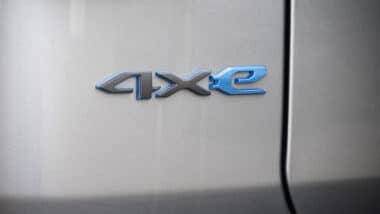 A Florida man has filed a class action lawsuit saying that the Greenway Chrysler-Jeep-Dodge dealership in Orlando violates phone solicitation laws by sending him and others pre-recorded messages advertising their goods and services without the recipients’ consent.
A Florida man has filed a class action lawsuit saying that the Greenway Chrysler-Jeep-Dodge dealership in Orlando violates phone solicitation laws by sending him and others pre-recorded messages advertising their goods and services without the recipients’ consent.
Plaintiff Clifton Picton is suing Greenway Chrysler-Jeep-Dodge Inc., saying that the company violated the Telephone Consumer Protection Act. He says that he did not give the company permission to call him, but they still left him a prerecorded message advertising their vehicle sales.
The issue of TCPA compliance has been getting a lot of attention in the auto dealership industry, with industry members urging one another to make sure their marketing complies with TCPA requirements in order to avoid lawsuits like Picton’s.
Similarly, businesses in many other industries are facing TCPA lawsuits, as it becomes easier and easier to contact potential customers via many modes of communication. Club Industry publication notes that Planet Fitness was recently hit with a TCPA class action lawsuit claiming that the company sent text messages that violated the TCPA.
In his car dealership phone solicitation laws class action lawsuit, Picton argues that the dealership company makes a widespread practice of sending these pre-recorded phone messages to many individuals, and as a result, has violated the TCPA numerous times in a similar manner.
He seeks compensation on behalf of himself and all other people who received similar messages to their cell phone from the company advertising Greenway’s dealership and/or their vehicle inventory within the last four years.
Picton says that Greenway Chrysler-Jeep-Dodge Inc. operates a car dealership in Florida, selling new Chrysler, Jeep, Dodge and Ram automobiles along with commercial vehicles and an assortment of used cars. The company is reportedly owned with Greenway Automotive group, which he says is “the nation’s eleventh largest automotive group.”
Picton says that the company violated the Telephone Consumer Protection Act, a law that is designed to protect consumers from bothersome advertisements sent by text message, phone call, and by fax.
Allegedly, Greenway violated the TCPA in a number of ways, including by not receiving prior express consent from call recipients to send them messages, and in using a prior recorded message to advertise their goods and services.
According to the Greenway phone solicitation laws violation class action lawsuit, Picton was contacted on his cell phone twice by Greenway in February 2018. Allegedly, the car dealership company sent him prerecorded messages on both occasions, promoting their vehicle sales and inventory in an attempt to get him to purchase a vehicle.
Picton argues that at no point did he give his consent to have Greenway contact him. Allegedly, many other people were contacted who similarly did not give their consent to be contacted.
He claims that he was injured by Greenway’s actions, claiming that the company invaded his privacy, caused him aggravation, annoyance, intrusion on seclusion, trespass, and conversion. He also says that Greenway “inconvenienced [him] and caused disruption to his daily life.”
The Greenway TCPA Phone Solicitation Laws Class Action Lawsuit is Picton v. Greenway Chrysler-Jeep-Dodge Inc., Case No. 6:19-cv-00196-GAP-DCI, in the U.S. District Court for the Middle District of Florida, Orlando Division.
Join a Free Car Dealership TCPA Violations Class Action Lawsuit Investigation
You may be eligible to join this lawsuit investigation into car dealership TCPA violations under the following circumstances:
- You did NOT provide express permission in writing to the car dealership to receive the calls or messages.
You did NOT purchase a vehicle from the dealership that is contacting you.
ATTORNEY ADVERTISING
Top Class Actions is a Proud Member of the American Bar Association
LEGAL INFORMATION IS NOT LEGAL ADVICE
Top Class Actions Legal Statement
©2008 – 2026 Top Class Actions® LLC
Various Trademarks held by their respective owners
This website is not intended for viewing or usage by European Union citizens.














